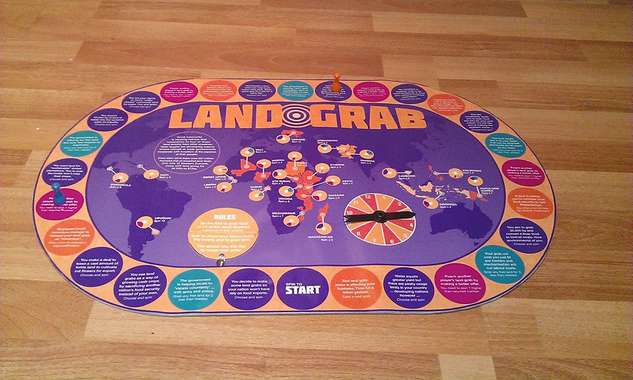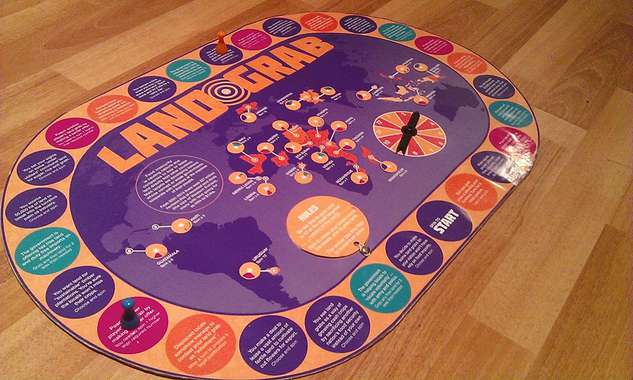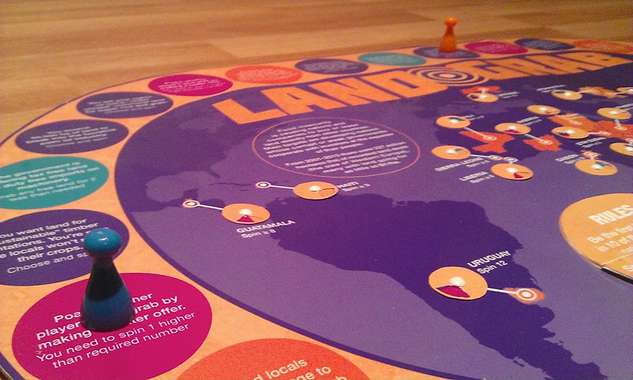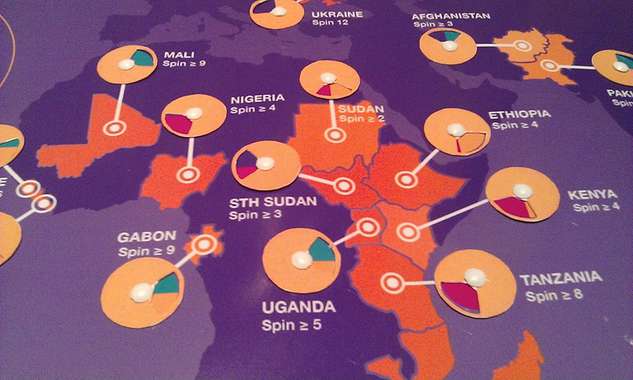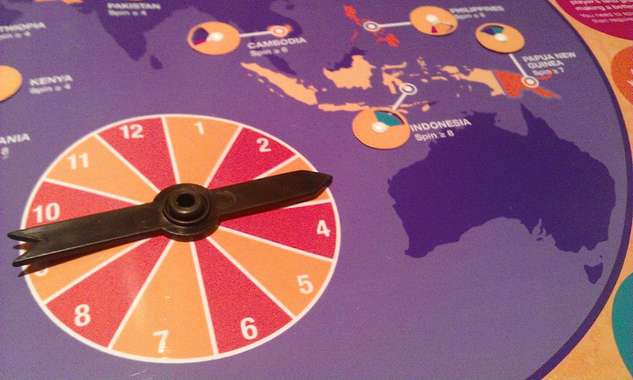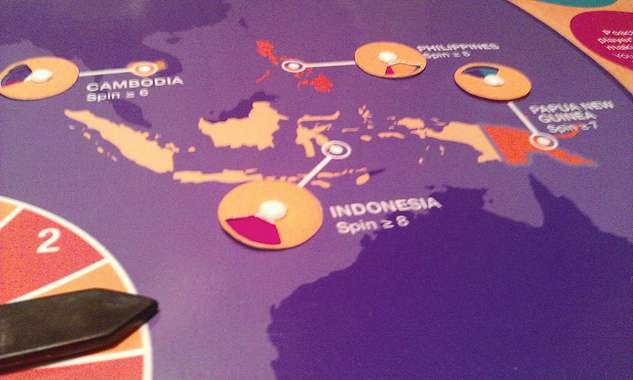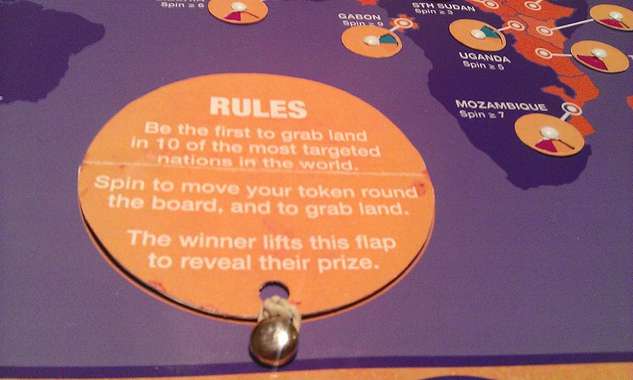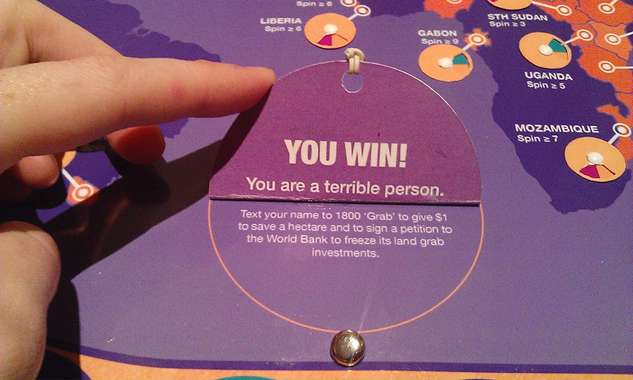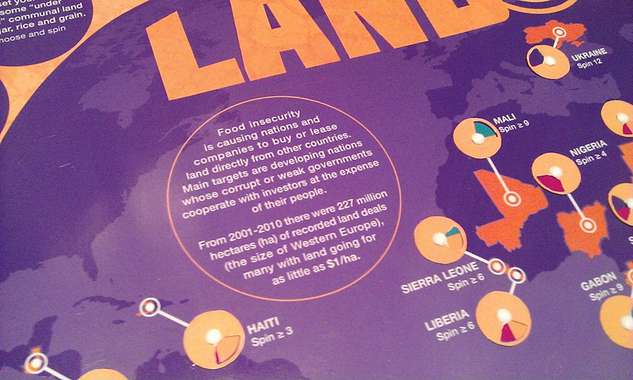Land Grab - The Game
by katerpillar
Files
This work has been commented by 1 curator(s). Read the comments
Title
Land Grab - The Game
Headline
Grab the land, gouge the people
Concept author(s)
Katherine Jauczius
Concept author year(s) of birth
1992
Concept author(s) contribution
Sole creator.
Concept author(s) Country
Australia
Friendly Competition
Competition category
Visual communication practice
Competition subcategory
static
Competition field
academic
Competition subfield
student
Subfield description
Queensland College of Art, B of Design
Check out the Food Democracy 2013 outlines of Memefest Friendly competition.
Description of idea
Describe your idea and concept of your work in relation to the festival outlines:
Food insecurity is causing nations and companies
to buy or lease land directly from other (often developing) countries.
From 2001-2010 there were 227 million hectares (ha) of recorded land deals, many going for as little as $1/ha
It struck me that nations/corporations are trying to 'snatch' land before someone else does.
Seemed a way to draw this parallel, and show the disregard for human suffering and global food security, was to create a literal board game, based around the concept of land grabs, where the objective is to play the role of the corporations and actually grab land.
Players move around the board by spinning the
arrow. They land on squares that tell them of an
aspect of landgrabbing and then instruct them
on what action to take.
The final twist of the game is that the winner is the one called at the end to donate and sign the petition by texting to 1800 ‘Grab’.
The idea that the winner is the one to ‘lose’ furthers the subversive quality of the game, and is indicative of how in the end land grabbing is a ‘game without winners’.
What kind of communication approach do you use?
I used a format inspired by existing ‘acquisition’ board games (Risk, Monopoly etc). It lures people in using the guise of the ‘innocuous game board’ and then engages them with subversive content. I wanted it to be fun. We have been told that people are more likely to take in and action on new information if it’s presented ‘desirably’. The goal was to remove barriers to playing it. The game is self-contained - no dice etc, the rules are very easy to understand and it can be completed relatively quickly (long enough for people to get a sense of the information without becoming bored).
What are in your opinion concrete benefits to the society because of your communication?
Exposes people to the general concept and
consequences of land grabbing - raises awareness
Gets people to engage with and hopefully respond to the issue.
Makes clear land grabbing's hidden relationship to food security and democracy.
Provides a platform for discussion.
If implemented on a grand scale, novelty factor would attract curiosity and interest and hopefully mean it is discussed afterwards - could even garner media attention.
What did you personally learn from creating your submitted work?
I have a lot more knowledge about many issues surrounding and contributing to land grabbing and food insecurity as it took me a long time to get a sense of the topic and decide which issue to focus on.
It taught me that while researching is
paramount you also need to be constantly
talking and consulting with others during your
process of formulating ideas.
I was trying to come up with ideas in my own
little bubble of perspective and experience,
but it wasn’t until I stared discussing it with
other people that I was able to get a sense of
the important parts to focus on and the means
through which I should communicate.
Why is your work, GOOD communication WORK?
I feel that it is indeed a ‘good’ design not only
in terms of its aesthetic value but also in the
overall intent and message, which the design
is just a means conveying.
I also feel that while I’m pushing an agenda, it allows for the audience to make up their own minds and discuss the issue and that it would appeal to a broad spectrum of people.
It encourages people’s interaction and allow for them to absorb more information during the course of the game than would be possible in say a poster.
All the information (while generalised) is based off actual case studies I found and the countries were chosen for the degree to which they are affected by land grabbing.
I was able to touch on virtually all of the surrounding issues of land grabbing and I make special mention of how land grabs affect food security and democracy.
Where and how do you intent do implement your work?
The game would act as a ‘conversation starter’. To be placed in public areas to be interacted with and talked about, not an actually marketed and sold product.
The goal was to get people sitting down to eat
their lunch etc to notice this game, quickly play it
and become aware and involved with the issue.
Did your intervention had an effect on other Media. If yes, describe the effect? (Has other media reported on it- how? Were you able to change other media with your work- how?)
No, it was a theoretical student piece.
Curators Comments
Roderick Grant
I'm at a disadvantage not really being able to 'play' the game at hand, but the potential interactions and conversations around the content embedded not only in the board, but in the nature of the gameplay itself.
I grew up with games such as Risk and Monopoly, and the inherent imperialism and capitalism is a potent and dangerous umbrella under which play is enacted...I think the theoretical premise of tactically undermining the basic premise of Risk is sound, especially since the potential for integrating basic, and not so basic trade economics into the gameplay affords and opportunity for players to confront the consequences of their actions in deeper and more meaningful terms than 'loose 5 red pieces'.
In fact, I wonder if the proposal here couldn't have actually referenced and borrowed from Risk more heavily? In order to undermine an imperialist notion of land acquisition, the game memes/tropes from Risk could have been used as a basic skeleton onto which a new and more sustainable and holistic view of land distribution could be mapped and integrated...
There's a ton of potential here, and I'm absolutely behind the gesture to engage gameplay as a place where education continues rather than ends. I'd encourage a further iteration of this to push into deeper appropriations and reinterpretations of land-grabs, and how the playing interactions cn be structured to mirror, and undermine previous gameplay models from the past in Risk and Monopoly.
Good effort.

